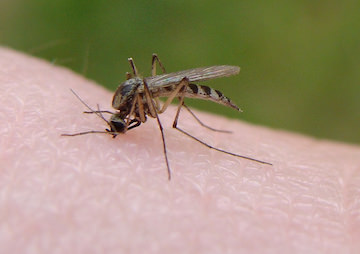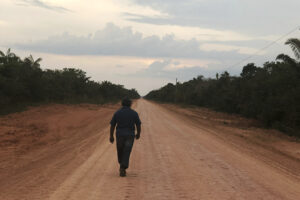WHO Declares Zika Virus a Global Public Health Emergency
The World Health Organization has declared a rare “public health emergency of international concern” because of the apparent link between the Zika virus and a huge increase in serious birth defects in Central and South America. wild_turkey5300 / CC BY 2.0
wild_turkey5300 / CC BY 2.0
The World Health Organization has declared a rare “public health emergency of international concern” because of the apparent link between the Zika virus and a huge increase in serious birth defects in Central and South America, where the virus has spread to more than 20 countries.
The announcement follows an emergency meeting in Geneva, where health experts reviewed the data on the outbreak. In some areas, infection with the Zika virus has been associated with the paralyzing neurological condition Guillain-Barré syndrome and with microcephaly, in which babies are born with severely shrunken and deformed heads and brains, according to WHO.
In Brazil, which reported its first case of Zika in May, the virus has infected about 1 million people and is associated with a 20-fold increase in microcephaly cases. Brazilian health officials have reported an estimated 4,000 confirmed and suspected cases of the ailment. By contrast, 2014 saw only 147.
At a Geneva news conference, Dr. Margaret Chan, WHO director general, stated that clusters of microcephaly in regions with Zika cases “constitute an extraordinary event and a public health threat to other parts of the world” and that “coordinated international response is needed to minimize the threat in infected countries and reduce risk of international spread.” Chan also said case-control studies on the Zika-microcephaly link will begin soon, The New York Times reported.
From the Times:
The official “emergency” designation can trigger action and funding from governments and non-profits around the world. It elevates the W.H.O. to the position of global coordinator, and gives its decisions the force of international law. The agency is trying to cast itself as a global leader to revive its reputation after a faltering response during the Ebola epidemic in West Africa.
“Can you imagine if we do not do all this work now and wait until all these scientific evidence to come out, people will say why didn’t you take action?” Dr. Chan said.
The current outbreak of Zika has taken the world by surprise. It was first identified in 1947 in Uganda, and for years lived mostly in monkeys. But last May in Brazil, cases began increasing drastically. The W.H.O. has estimated that four million people could be infected by the end of the year. It is spreading fast in the Americas because people there have not developed immunity.
The W.H.O. has declared a public health emergency three times since 2007, when it first established the procedure — for the influenza panademic in 2009; in 2014 when polio seemed resurgent; and in August 2014 for Ebola. Some experts applauded the decision to add Zika to the list.
“This should be a global wake up call,” said Lawrence O. Gostin, director of the O’Neill Institute for National and Global Health Law at Georgetown University. But he added: “The main question on my mind is whether they will back up their words with decisive action.”
Read more here.
–Posted by Roisin Davis
Dig, Root, GrowThis year, we’re all on shaky ground, and the need for independent journalism has never been greater. A new administration is openly attacking free press — and the stakes couldn’t be higher.
Your support is more than a donation. It helps us dig deeper into hidden truths, root out corruption and misinformation, and grow an informed, resilient community.
Independent journalism like Truthdig doesn't just report the news — it helps cultivate a better future.
Your tax-deductible gift powers fearless reporting and uncompromising analysis. Together, we can protect democracy and expose the stories that must be told.
This spring, stand with our journalists.
Dig. Root. Grow. Cultivate a better future.
Donate today.






You need to be a supporter to comment.
There are currently no responses to this article.
Be the first to respond.